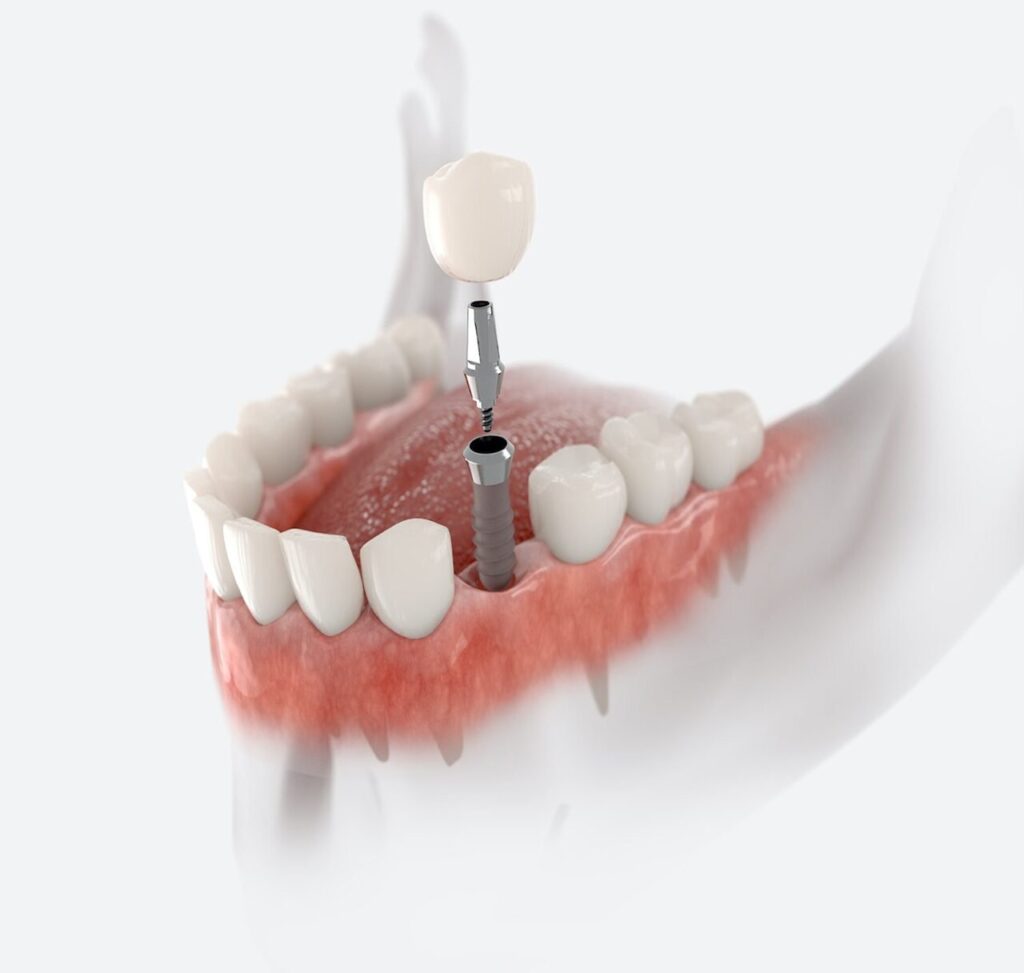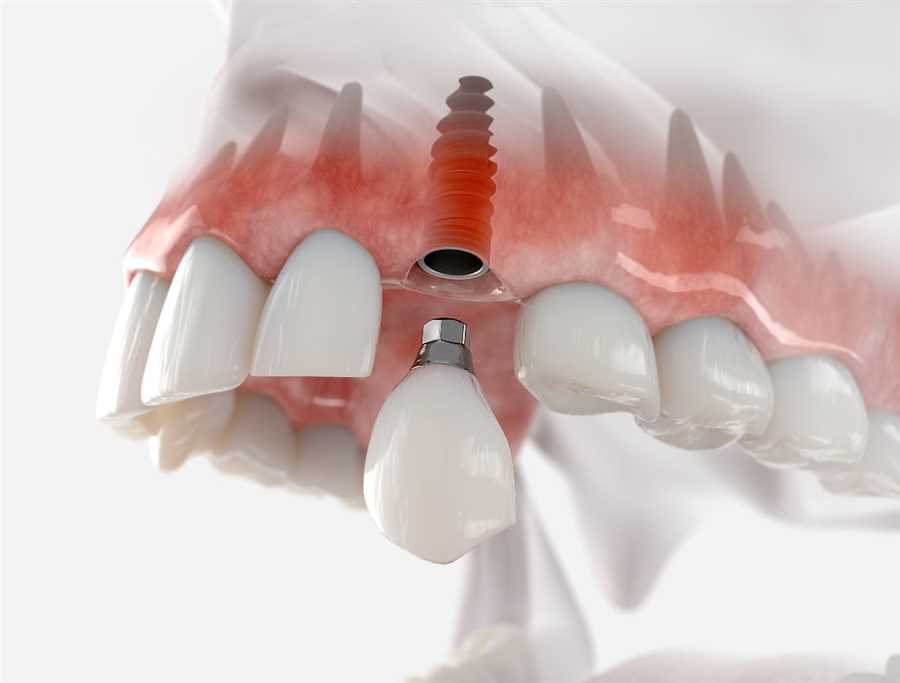DENTAL IMPLANTS
Dental Implants: The Absolute Best Support for Your Restorations
Missing teeth can take the joy out of many everyday things you love, including speaking, smiling, and eating your favorite meals. If you are ready to rebuild your smile, Dr. Sol Weiss provides Dental Implants at his Toronto, ON, practice. Dental implants are small titanium posts that are surgically embedded in the jawbone to replace lost tooth roots and provide unmatched support for dentures and crowns. To learn more about the many benefits of dental implants, contact our practice today and schedule your consultation.
What are Dental Implants?

Are Dental Implants Painful?
Dental implant placement is typically done under local anesthesia to minimize discomfort, with sedation options available for those seeking additional relaxation during the procedure. Postoperative discomfort is manageable with prescribed medications and tends to diminish as the healing progresses. Under the supervision of a qualified dentist, the procedure will be comfortable and painless for the patient.

How Long do Dental Implants Last?
Dental implants are known for their exceptional durability and longevity. With proper care and maintenance, implants can last several decades or even a lifetime. The longevity of implants is influenced by factors such as oral hygiene practices, regular dental check-ups, and lifestyle habits. Individuals with implant teeth must adhere to a consistent oral care routine, including brushing, flossing, and regular dental visits, to ensure the longevity and success of their implants. Additionally, avoiding habits like smoking and maintaining a healthy lifestyle can positively impact the lifespan of dental implants. Overall, the robust nature of dental implants, combined with conscientious oral care, contributes to their impressive and long-lasting performance.
A Versatile Restorative Option
01
Implant-supported crowns
Regain your confidence and restore your smile with our tooth implant-supported crowns. This dental implant solution is excellent for replacing a missing tooth and involves the placement of a tooth implant into the jawbone, followed by attaching a custom-made crown to the implant. The result is a natural-looking and seamless restoration that blends seamlessly with your existing teeth.
02
Implant-Retained Bridges
Our implant-retained bridges offer an effective solution if you have multiple missing teeth. This option utilizes dental implants to support the bridge, eliminating the need for adjacent healthy teeth to serve as anchors.
By anchoring your bridge to implants strategically placed in the jawbone, we can restore the appearance and function of your smile. Implant-retained bridges provide a secure and long-lasting solution for replacing multiple missing teeth.
03
Implant-Supported Dentures
Our implant-supported dentures offer a secure and stable solution for patients missing all their teeth. This treatment involves placing several dental implants strategically in the jawbone to serve as anchors for a full arch of dentures.
Implant-supported dentures provide a comfortable and reliable replacement for your natural teeth, allowing you to enjoy the benefits of a fully functional smile. With this solution, you can regain confidence and improve your quality of life.
The Dental Implant Placement Procedure

The Many Benefits of Dental Implants
As a whole, implants have many benefits, making them the dental implant option out there for restoring missing teeth. Some of their advantages include:
01
Natural Look and Feel
Dental implants closely resemble natural teeth, both in appearance and function. Their secure placement in the jawbone provides a seamless and natural-looking smile that boosts your self-confidence.
02
Enhanced Stability
Unlike conventional dentures or bridges, the stability of dental implants is unmatched, providing you with a worry-free experience free from slippage or movement. Feel confident as you indulge in your favorite foods and participate in social activities without any concerns.
03
Preservation of Jawbone Health
When a tooth is lost, the jawbone can begin to deteriorate over time. Dental implants help preserve the health and integrity of your jawbone by stimulating natural bone growth through osseointegration. This prevents bone loss and maintains your facial structure.
04
Longevity
You can expect your implants to last a lifetime with proper care and regular dental check-ups. This long-lasting solution surpasses other tooth replacement options, such as dentures or bridges, which may require eventual replacement.

Determining Your Candidacy
Frequently Asked Questions
Are dental implants noticeable, or do they look natural?
Dental implants are designed to closely mimic the appearance and function of natural teeth, resulting in a natural-looking and aesthetically pleasing outcome. When properly placed and restored, dental implants are typically not noticeable and blend seamlessly with your existing teeth.
The crown or prosthesis attached to the dental implant is customized to match the color, shape, and size of your natural teeth, ensuring a harmonious and natural appearance. Your dentist will work closely with you to achieve the desired shade and shape of the restoration, ensuring that it matches your surrounding teeth and complements your smile.
Can dental implants improve my ability to chew and speak?
Yes, dental implants can significantly improve your ability to chew and speak effectively. One of the primary benefits of dental implants is their ability to restore proper oral function, including biting, chewing, and speaking.
Dental implants are surgically placed into the jawbone, where they fuse with the surrounding bone through a process called osseointegration. This integration creates a stable and durable foundation for the replacement teeth or prostheses attached to the implants.
By replacing missing teeth with dental implants, you regain the ability to bite and chew with strength and stability, similar to that of natural teeth. This allows you to enjoy a wide range of foods and maintain a balanced diet.
Additionally, dental implants provide stability to the replacement teeth, preventing slippage or movement that may occur with traditional removable dentures. This stability enhances your ability to speak clearly and confidently as the teeth remain securely in place.
Are dental implants safe for long-term use?
Yes, dental implants are generally considered safe for long-term use. Dental implant technology has been extensively researched, developed, and refined over several decades, resulting in a reliable and predictable tooth replacement option.
Dental implants are typically made of biocompatible materials, such as titanium, which allows them to fuse with the jawbone through osseointegration. This process provides a strong and stable foundation for the replacement teeth, ensuring long-term stability and durability.
While dental implant surgery is a complex procedure, when performed by a qualified and experienced dental professional, the risks and complications associated with it are minimal. The success rate of dental implant procedures is generally high, with success rates ranging from 95% to 98%.
Can dental implants help preserve the structure of my jawbone?
Yes, dental implants can help preserve the structure of the jawbone. When a tooth is lost or extracted, the underlying jawbone can begin to deteriorate or resorb over time. This bone loss can lead to changes in facial appearance, shifting of remaining teeth, and difficulties with denture stability.
By replacing missing teeth with dental implants, you can prevent further bone loss and preserve the natural contours of your jawbone. This not only contributes to the overall health and function of your mouth but also helps maintain a more youthful facial appearance.
It’s important to note that timely replacement of missing teeth with dental implants is crucial for preserving the jawbone. If you have experienced tooth loss, it’s advisable to consult with a dental professional experienced in dental implant treatment to evaluate your specific situation and discuss the potential benefits of dental implants for preserving your jawbone structure.
Are there any age restrictions for getting dental implants?
There is generally no strict age restriction for getting dental implants. The eligibility for dental implant treatment is primarily determined by the individual’s oral health, bone density, and overall health rather than their age.
In fact, dental implants can be suitable for a wide range of age groups, including young adults, middle-aged individuals, and older adults. However, it’s important to evaluate each case individually to ensure that the patient meets the necessary criteria for successful implant placement.
During the initial consultation, the dentist will assess various factors such as the quantity and quality of the jawbone, overall oral health, and the patient’s ability to undergo the surgical procedure. Adequate bone density is essential for successful implant placement, as the implants need a solid foundation to fuse with the jawbone.



